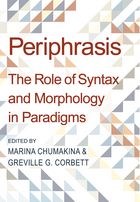Brighter, cleverer, but more intelligent: Understanding periphrasis
Project Overview
Project
Brighter, cleverer, but more intelligent: Understanding periphrasis
Project members:
Prof Greville G. Corbett
Dr Dunstan Brown
Dr Marina Chumakina
Period of award
November 2007 - October 2010
Funder:
Arts and Humanities Research Council (AHRC)
Periphrasis is a widespread and significant phenomenon, and a valuable indicator of how a language functions. It reveals how the construction of meaning in language is apportioned between syntax and morphology. In a simple example from English, we have 'bright' and 'brighter' but 'intelligent' and 'more intelligent'.
Linguistic theory has struggled to resolve the problem of periphrasis, because the theoretical devices available are inadequate and little is known about the range of variation in periphrastic constructions across a wider sample of languages. We need to understand the interaction of periphrastic constructions with the morphology and syntax of the languages they are found in, and the changes they undergo as they develop from being a free syntactic phrase to being part of the inflectional paradigm.
The research systematically catalogues data from diverse languages and makes it available in a fully structured way to allow useful comparison. A clearer grasp of how periphrastic constructions are formed and how they function in the languages of the world will help us to understand the nature of the word, and will give us a better idea of the possible sizes and shapes of inflectional paradigms.



